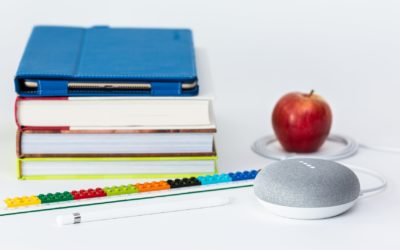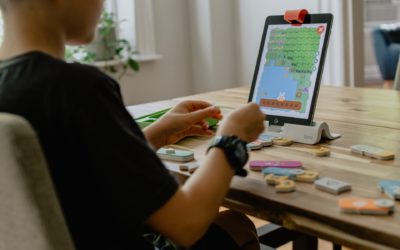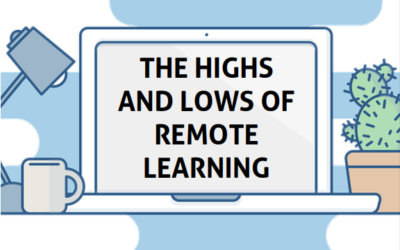(Guest post from Stacy Scofield from sponsor Commonwealth Learning) More than three years have passed since the World Health Organization declared COVID-19 a pandemic. And now, with little pomp and circumstance, the Public Health Emergency Declaration is over. We made...
Smooth Sailing into September
It's that time of year again when students have either started back or are beginning to start back to the school year and even old work routines. While some aspects of getting back to old routines are welcome, there are plenty of reasons why students, teachers, and...
Dyslexic Strengths in Times of Adversity
"...dyslexics sometimes seem unusually well suited to deal with major changes -- to being able to see opportunities inside of adversity. They are known to be particularly good at rethinking situations in an original way. They are known to be able to see what others...
Recovering from Pandemic Losses [Premium]
As we all hope the worst of the pandemic is behind us, the schools must all anticipate an even greater variability in reading, writing, and math levels for students due different degrees of pandemic loss and social and emotional stress. Educational researchers and school psychologists are warning parents and teachers that the diagnoses of learning disabilities may be especially prone to errors: “When education has been disrupted by COVID-19, rigid adherence to DSM-5 criteria for initial diagnosis of a specific learning disorder entails substantial risk of error. In the past two years, most youth have experienced some loss of academic instruction. Many have also experienced psychosocial adversity (such as death of a loved one or decreased social support). Interventions might not have been available within […]
Learning from Lockdown: Dyslexic Medical Students
"The learning experiences of dyslexic medical students during the COVID-19 pandemic: a phenomenological study. This study has explored the learning experiences of dyslexic medical students during the COVID-19 pandemic... Generally, it fostered a culture of...
Recovering from Pandemic Loss
Numbers are starting to trickle in from February testing and the good news is that things are beginning to recover, but younger grades are behind more than older children. The numbers below are all students, without dyslexic students studied separately, but if...
Avoiding the Third Grade Madness
If you're the parent of a third grade child with dyslexia in the public school system, your student may be having an especially difficult time. Some of the struggle might be understandable as classrooms attempt to move past learning to decode to reading to...
Should I Homeschool?
With a large part of the world at least partially homeschooling this past year and students falling behind, some parents are asking whether they should homeschool their kids for the rest of the school year or perhaps for the 2022-23. Homeschooling during the pandemic...
Math Distance Learning for Students with Dyslexia
Here are several desirable features for remote math programs for dyslexic students: - Comprehensive (math builds on prior knowledge; programs must be comprehensive) - Spiralling (reviews and deepens knowledge of concepts over time; more info here) - Video and...
The Highs and Lows of Remote Learning
"I don’t know how I’ll get through this. I know I must, but I am beyond exhausted." - a parent, APM Reports "What did we do to deserve this torture?" - a student about I-Ready By now, many school children and university students around the world have had some...
Education During the Pandemic: Preparing for the Unpreparable [Premium]
As I am writing this, omicron cases have not reached their peak in the US, and calls for schools to close again because of the extreme contagiousness of this variant. How do parents, teachers, and tutors prepare for another unpredictable year? ONE STUDENT AT A TIME If pandemic education has told us anything thus far, it’s that students will tell us what they need as much as any best laid plans. No matter what you decided for your students for the past year, reviewing what worked and what didn’t can be valuable going forward. If you have several children, you might have seen something work for one student, but not another. As before, the goals should be focusing on reasonable fits and not inflexible […]
Lip Reading and Dyslexia [Premium]
There is a long and diverse research history of dyslexia and documenting the auditory processing difficulties associated with dyslexia that hinder phonological awareness. It’s why dyslexic kids will struggle in school when everyone is required to wear a mask. The sounds are muffled, but also if the teacher is masked, then students cannot look at the teachers mouth – as an additional cue to what sound is being made. In a recent study published by Annals of Dyslexia, researchers made an interesting observation: “those children with dyslexia who are better readers attended more to the mouth while presented with a person’s face in a phonologically demanding condition.” More research needs to be done about this issue, be aware of helps like watching a video of […]




![Recovering from Pandemic Losses [Premium]](https://www.dyslexicadvantage.org/wp-content/uploads/2022/10/Recovering-from-Pandemic-Losses.png)






![Education During the Pandemic: Preparing for the Unpreparable [Premium]](https://www.dyslexicadvantage.org/wp-content/uploads/2022/02/Education-during-the-Pandemic.png)
![Lip Reading and Dyslexia [Premium]](https://www.dyslexicadvantage.org/wp-content/uploads/2021/11/lip-reading-400x250.jpg)













